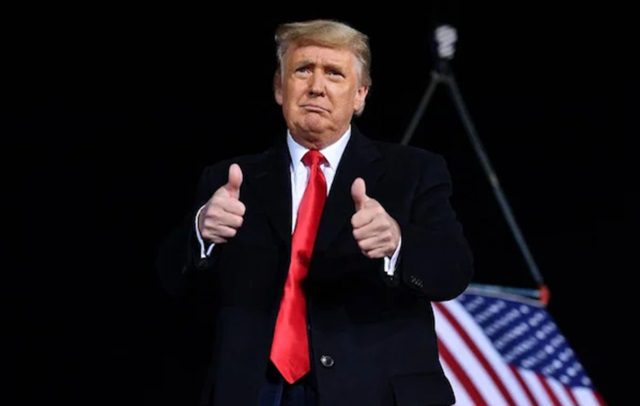BTN News: As part of the radical policy shift that took many by surprise, former President Donald Trump had mooted granting foreign students automatic Green Cards after graduating from US colleges. The goal is to keep high-quality individuals and stave off a brain-drain to countries like India and China, where many are said to enjoy great success when they return home. In a recent podcast, Trump praised the economic benefits of keeping these graduates in the country – an argument that is somewhat new for a president who has advocated more restrictive immigration policies in the past.
Trump said that it is necessary to help graduates from leading US universities such as Harvard and MIT, so attaching a Green Card to their diploma would retain them in the country and help the economy. He said the United States stands to lose that creativity and entrepreneurial spirit if it gets put out of reach.
Draft of the immigration plan was slated for delivery with rapidity to Congress, increasing on ‘All-In’ podcast by way of venture capitalists Commenced by immigrants Donald Trump’s immigration proposal to change over to a set-aside pool system according to officials That stands in stark contrast to his previous campaign to sharply curb legal immigration, which included fierce steps during his presidency such as limiting H-1B visas and other programs.
Trump during his term put in place policies to reduce legal immigration into the United States on concerns about Americans losing jobs. Still, his newest proposal represents a pivot away from that, and towards acknowledging the economic benefits of highly educated foreign graduates – particularly in STEM fields.
The announcement has offered a ray of hope for lakhs of Indian students currently studying in the US and absorbedly those who passed out recently. If adopted, the proposal could make it easier for many to move from student visas to green cards, and ultimately entering that labor market – building their vertical jump in America.
The US immigration system has always been controversial, primarily in the areas of worker visas and green card programs. Trump’s new proposal sparks a different front in the race – promising to bring in and keep the talent that is seen as a fundamental enabler of US technological and economic success while taking merit-based immigration policies to new heights.
The way this country reacts to the significant changes coming – at least in terms of proposed numbers – in its policies toward immigration may well hinge on the responses of other sectors critical to national security including schools and tech companies. While the consequence on the larger economy and global competitiveness are to be determined as debates surrounding immigration reform progress.
And Trump’s proposal is a hint of where the administration could be heading with immigration policy, zeroing in on the graduated skilled immigrants from US institutions who can add to innovation and economic growth within its own borders.
Conclusion
The rise of Donald Trump, who wants to hand out automatic Green Cards to foreign graduates, is a significant shift in policy that underlines the economic worthiness of high-skilled immigrants. Responses are mixed, but the stakes for US competitiveness and innovation are dramatically high, framing dialogue on suggestions for immigration reform heading into next week’s elections.


